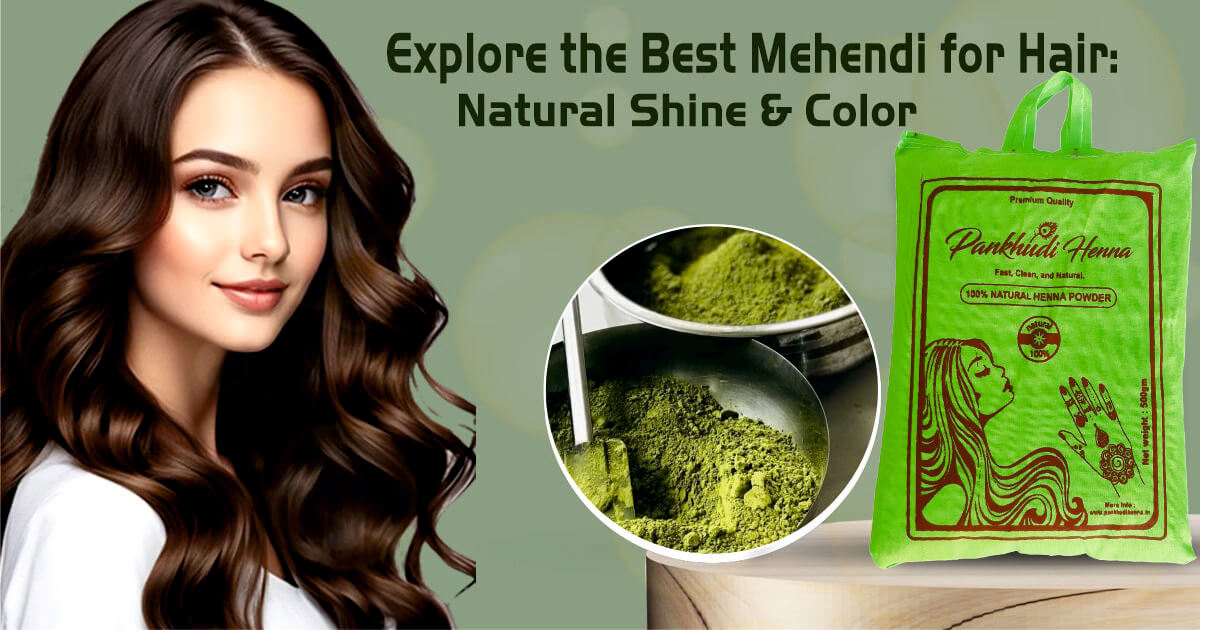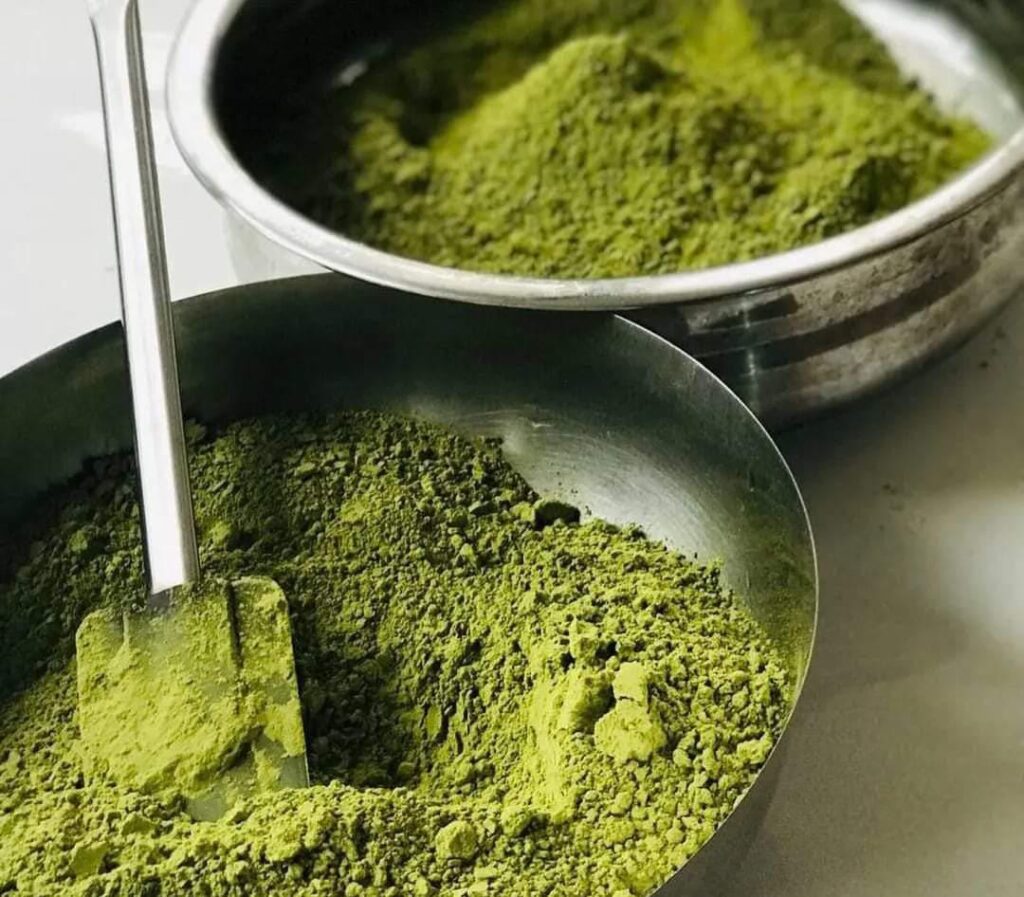
Henna Powder for Hair: The Ultimate Guide to Natural Hair Dye and Treatment
Introduction: The Natural Power of Henna Powder for Hair
In a world where hair care products are often laden with chemicals, henna powder stands out as a natural and effective solution. Known for its vibrant red hue and conditioning properties, henna has been used for centuries as a natural hair dye and treatment. If you’re looking for a chemical-free way to color your hair, enhance its shine, and improve scalp health, henna powder might just be the answer.
In this comprehensive guide, we will explore everything you need to know about using henna powder for hair, from its benefits and application methods to tips for achieving the best results.
Table of Contents
- What is Henna Powder?
- Benefits of Using Henna Powder for Hair
- How to Choose the Right Henna Powder
- Step-by-Step Guide: How to Use Henna Powder on Hair
- Henna Hair Dye: Natural Color Variations
- Henna Hair Treatment Recipes
- Henna Powder Aftercare Tips
- Common FAQs About Henna Powder for Hair
- Conclusion
1. What is Henna Powder?
Henna powder is made from the dried and ground leaves of the Lawsonia inermis plant, commonly known as the henna tree. This all-natural powder has been used for thousands of years in regions like India, the Middle East, and North Africa for body art and hair care. When mixed with water, henna powder releases a red-orange dye known as lawsone, which bonds to the keratin in hair, giving it a rich, natural color.
2. Benefits of Using Henna Powder for Hair

Henna powder offers numerous benefits, making it a popular choice for those seeking natural hair care solutions:
- Natural Hair Dye: Henna provides a beautiful, natural red-brown color without the harsh chemicals found in synthetic dyes.
- Strengthens Hair: Henna coats the hair shaft, adding volume and strength, reducing breakage and split ends.
- Conditions and Moisturizes: Henna acts as a deep conditioner, leaving hair soft, shiny, and healthy.
- Balances Scalp pH: It helps maintain a healthy scalp by balancing pH levels, reducing dandruff, and soothing irritation.
- Chemical-Free: Henna is 100% natural and free from harmful chemicals like ammonia, parabens, and sulfates.
3. How to Choose the Right Henna Powder
Not all henna powders are created equal. Here are some tips for choosing the best henna powder for your hair:
- Pure Henna: Look for 100% pure henna powder with no additives or chemicals.
- Freshness: Ensure the henna is fresh, as older powders may lose their potency.
- Finely Sifted: A finely sifted powder is easier to mix and apply, resulting in a smoother paste.
- Organic Certification: Opt for organic henna to avoid pesticide residues.
4. Step-by-Step Guide: How to Use Henna Powder on Hair

Applying henna powder to your hair is a straightforward process. Follow these steps for the best results:
Step 1: Prepare the Henna Paste
- Mix henna powder with warm water in a bowl until it forms a smooth, yogurt-like paste.
- Add a few drops of essential oils like lavender or tea tree to enhance the color and scent.
- Cover the bowl with plastic wrap and let it sit for 4-8 hours for dye release.
Step 2: Prep Your Hair
- Wash your hair with a mild shampoo to remove any oils or residue.
- Towel dry your hair until it’s damp, not dripping wet.
Step 3: Apply the Henna Paste
- Section your hair and apply the henna paste using a brush or gloved hands.
- Start from the roots and work your way down to the tips, ensuring even coverage.
- Once fully covered, wrap your hair in a plastic shower cap.
Step 4: Leave It On
- Allow the henna to set for 2-4 hours, depending on the depth of color you desire.
- For richer color, leave it on longer.
Step 5: Rinse and Condition
- Rinse the henna out with lukewarm water (no shampoo) until the water runs clear.
- Follow up with a conditioner to moisturize your hair.
5. Henna Hair Dye: Natural Color Variations
While henna is known for its signature red color, you can achieve different shades by mixing it with other natural ingredients:
- Dark Brown/Black: Mix henna with indigo powder.
- Auburn/Chestnut: Add a tablespoon of ground coffee or black tea to the henna paste.
- Golden Tones: Mix henna with chamomile tea or turmeric powder.
6. Henna Hair Treatment Recipes
Here are a few henna-based hair treatments for different hair needs:
- For Dry Hair: Mix henna with coconut milk and olive oil for added moisture.
- For Hair Growth: Combine henna with fenugreek powder and yogurt to promote hair growth.
- For Dandruff: Mix henna with neem powder and a few drops of tea tree oil to combat dandruff.
7. Henna Powder Aftercare Tips
To maintain the vibrancy of your henna-colored hair, follow these aftercare tips:
- Avoid Shampoo for 48 Hours: This helps the color set and deepen.
- Use Sulfate-Free Products: Opt for natural, sulfate-free shampoos to prevent color fading.
- Oil Your Hair: Use coconut or argan oil weekly to keep your hair hydrated and shiny.
8. Common FAQs About Henna Powder for Hair
Q1: Can henna cover gray hair?
Yes, henna can cover gray hair, but it may result in a vibrant red-orange shade. For a darker color, mix henna with indigo.
Q2: How often can I use henna on my hair?
It’s safe to use henna once a month. Overuse can dry out your hair, so ensure to condition it properly.
Q3: Does henna damage hair?
No, henna is a natural conditioner and doesn’t damage hair. However, always use pure henna without chemicals for the best results.
9. Conclusion
Henna powder for hair is a versatile and natural solution that not only colors your hair but also strengthens, conditions, and improves scalp health. Whether you’re looking to switch to a chemical-free hair dye or seeking a natural treatment for hair growth and shine, henna offers an array of benefits. Embrace the natural power of henna and transform your hair care routine today!





